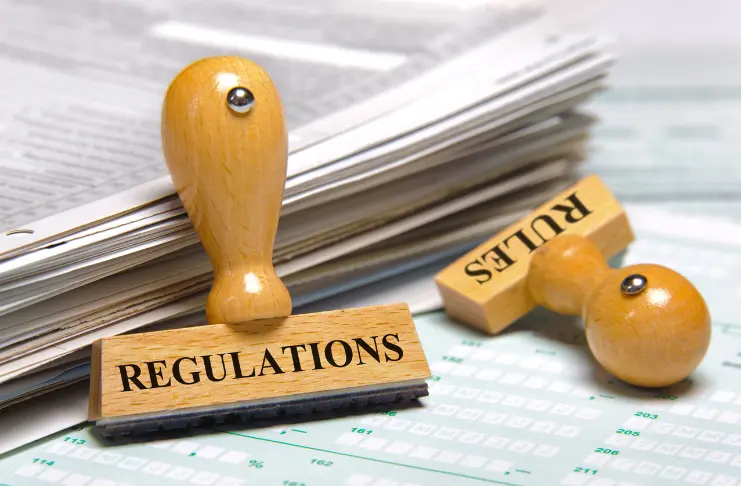Picture this: The tantalizing aroma of perfectly spiced dishes, the rhythmic sounds of a bustling kitchen, and the satisfaction of bringing dreams to life.
Embarking on a restaurant business venture is more than just perfecting your signature dish or designing an Instagram-worthy interior. It’s a complex journey that begins with understanding the legal landscape of food business ownership in the United Kingdom, including the various restaurant permits required . Navigating the maze of licenses and permits might seem daunting, but with the right guidance, you’ll transform your culinary passion into a thriving, legally compliant establishment.
This guide provides an in-depth look at the required restaurant licenses in the UK, helping restaurant owners and aspiring entrepreneurs navigate the legal landscape with ease.
Steps to Start Your Restaurant Business
At the face of it, a restaurant’s identity begins with its food. But the food is actually the last step to all of it. There are several restaurant requirements to be fulfilled before setting up a restaurant. Below is a step-by-step guide to starting your journey– from your business foundation to required restaurant licence in the UK.
1. The First Step: Business Foundation
Your restaurant’s legal journey starts with fundamental business registration. Unlike cooking a complex recipe, setting up your business structure requires careful consideration. Will you be a sole trader, operating independently with personal liability? Or perhaps a partnership, sharing both risks and rewards?
Alternatively, a limited company offers more protection but comes with additional reporting requirements. Each structure has its nuances, and your choice will impact everything from taxation to personal financial risk.
Registering with Companies House is your first official step. This process establishes your business’s legal identity, providing a framework for your entrepreneurial dreams.
Simultaneously, you’ll need to register with HMRC to obtain a unique tax reference number. These initial administrative tasks might seem bureaucratic, but they’re crucial in establishing your restaurant’s legal credibility.
2. Food Business Registration to Ensure Food Safety
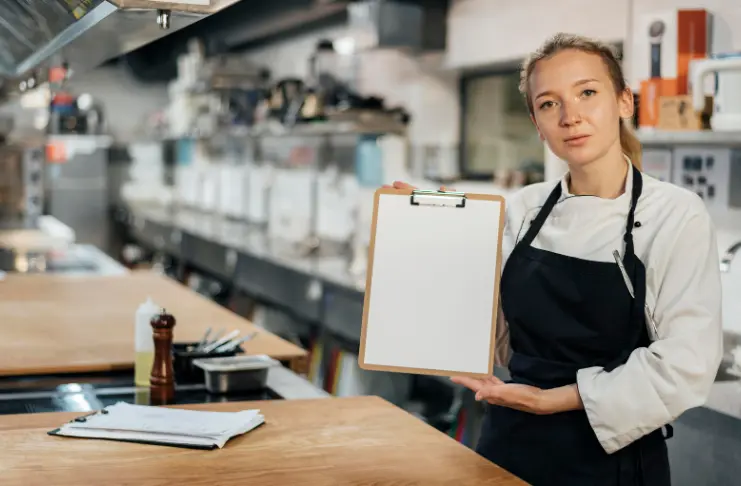
Before you start preparing and serving food, you must register your food business with the local authorities. This step ensures compliance with food safety laws and allows inspections to take place. Health and safety aren’t checkboxes but ongoing commitments. Regular risk assessments, staff training in food hygiene, and food safety training, along with staying updated with changing regulations, are part of your restaurant’s DNA.
The Food Standards Agency provides comprehensive guidelines that go far beyond basic cleanliness. The steps to register are as follows:
- Identify the Local Authority: Determine the council governing your restaurant’s location.
- Complete the Registration Form: Provide details about your business, including the nature of food operations and premises address.
- Submit at Least 28 Days Prior: Ensure registration is completed at least 28 days before commencing trade.
Registration is free and cannot be refused, but it is a legal obligation that sets the stage for compliance with food safety standards.
3. Food Premises Approval to Ensure Food Safety Compliance

If your restaurant handles meat, fish, dairy, or egg products, you might need additional approval to ensure food safety compliance. Steps to obtain approval are:
- Assess Your Operations: Determine if your food processing activities require approval.
- Contact Environmental Health Service: Reach out to your local authority’s Environmental Health department for guidance.
- Undergo Inspection: Prepare for an inspection to verify adherence to hygiene and safety regulations.
Approval ensures that food safety standards are maintained, protecting customers and maintaining compliance.
4. Premises Licence (required for Liquor License)
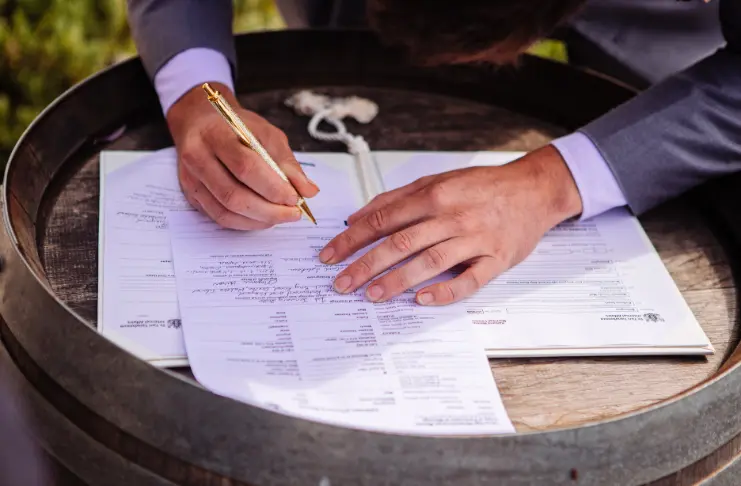
For many restaurants, a well-curated drink menu is as important as the food. However, serving alcohol isn’t as simple as stocking a bar. You’ll need to navigate the intricate world of alcohol licensing. This involves obtaining both a Premises Licence for your establishment and a Personal Licence for your designated supervisor.
A Premises Licence is required if your restaurant plans to serve alcohol, provide entertainment, or offer late-night refreshments. The application process is as follows:
- Consult Local Council: Contact your local council to understand the specific requirements for obtaining a Premises Licence and request the necessary application forms. Different councils may have unique guidelines regarding alcohol sales, entertainment, and late-night service.
- Complete Detailed Application: Fill out the application form, clearly outlining all proposed activities, such as selling alcohol, hosting live music, or providing late-night refreshments. Providing thorough details ensures compliance and reduces the likelihood of delays or objections.
- Public Notification: Advertise your application in a local newspaper and display notices at your premises for a specified period, as required by law. This step allows the public and local authorities to raise any concerns before the council makes a final decision.
A Premises Licence grants legal authority to conduct certain business activities, enhancing your restaurant’s offerings.
5. Personal Licence (required for Liquor License)
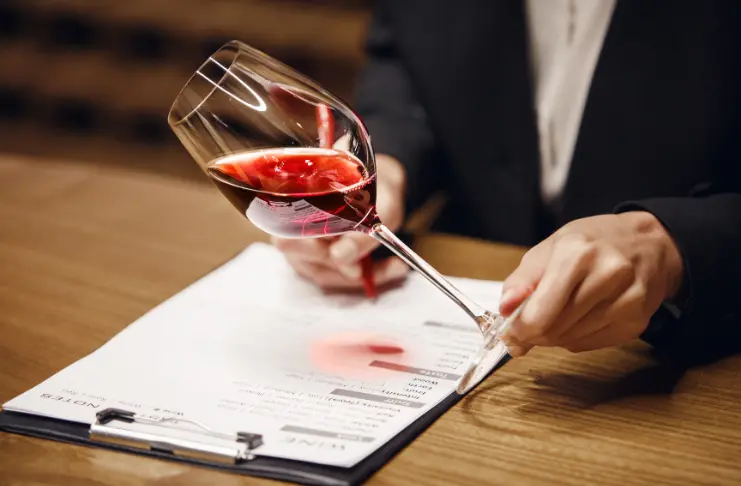
To supervise the sale of alcohol, a Personal Licence is required, ensuring responsible alcohol retailing. Steps to obtain this restaurant licence in the UK are:
- Complete Accredited Training: Enroll in a government-approved course like the BIIAB Level 2 Award for Personal Licence Holders.
- Apply to Local Council: Submit your application with the training certificate, a Disclosure and Barring Service (DBS) check, and passport-sized photos.
Holding a Personal Licence demonstrates a commitment to responsible alcohol service.
6. Employer PAYE Reference

If you plan to hire staff, registering as an employer with HM Revenue and Customs (HMRC) and obtaining an employer identification number is essential for tax purposes. The registration steps are as follows:
- Register Online: Use HMRC’s online portal to register as an employer.
- Receive PAYE Reference: Upon registration, you’ll be assigned a unique PAYE reference number.
This reference facilitates proper tax reporting and compliance with employment regulations.
7. Planning Permission & Change of Use Permission
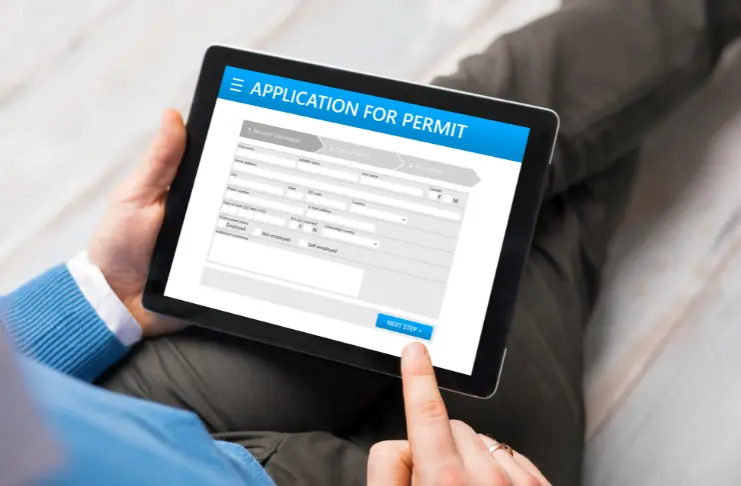
If you are changing the use of a property or making structural modifications, you may need planning permission. The process overview is:
- Consult Local Planning Authority: Contact your local planning authority to determine the property’s current use class and whether a change of use is required. Understanding these regulations ensures compliance and helps avoid potential legal issues.
- Submit Application: Prepare and submit a formal application outlining the proposed changes, including detailed plans, business justifications, and any necessary supporting documents. Providing clear explanations and evidence can improve the chances of approval.
- Await Decision: The local council will review the application, considering factors such as community impact, traffic, and environmental concerns, before making a decision. This process can take several weeks, and approval may come with specific conditions or requirements.
Securing planning permission ensures your restaurant operates within zoning laws and community plans.
8. Sign Permit

Erecting external signage may require permission to maintain visual harmony in the community. The application process includes:
- Design Signage: Develop signage that complements the local area’s aesthetic and adheres to any design restrictions set by the council. Consider factors such as size, lighting, and materials to ensure compliance with local planning rules.
- Submit Application: Submit a formal application to the local planning authority, including detailed specifications, dimensions, and proposed placement. Some councils may require additional documents, such as illustrations or structural details, to assess the impact of the signage.
- Compliance Check: Ensure that the signage meets all safety, visibility, and size regulations before installation. Failure to comply with these rules may result in penalties or the requirement to remove or modify the signage.
Proper signage enhances visibility while adhering to community standards.
9. Music Licence
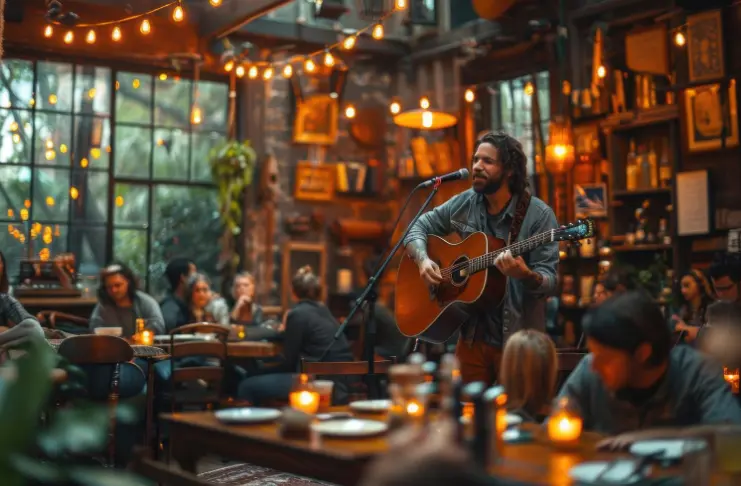
Playing music in your restaurant, whether live or recorded, requires licenses to respect artists’ rights. Modern restaurants are about experience, and that often includes music and entertainment. However, playing background tracks or hosting live performances requires additional licensing.
Interestingly, some small venues might be exempt from certain requirements, so it’s worth investigating the specific regulations that apply to your unique space. The key is understanding that these licenses aren’t bureaucratic hurdles but mechanisms to ensure public safety and fair use of artistic content. The steps to obtain a music licence are as follows:
- Contact Performing Right Society (PRS) for Music: Reach out to PRS for Music to obtain a license for the public performance of music in your establishment. This ensures you have legal permission from artists and songwriters to play music, whether through live performances or background music.
- Contact Phonographic Performance Limited (PPL): Apply for a PPL license to legally play recorded music in your business, whether from CDs, streaming services, or radio. This license ensures that performers and record labels receive fair compensation when their recordings are used in a commercial setting.
These licenses ensure fair compensation to creators and the legal operation of your establishment.
10. VAT Registration

If your turnover exceeds the VAT threshold, registering for Value Added Tax (VAT) is mandatory. The registration process is as follows:
- Register Online: Use HMRC’s portal to register for VAT.
- Charge and Reclaim VAT: Adjust your pricing to include VAT and reclaim it on eligible purchases.
VAT registration is crucial for tax compliance and financial transparency.
11. Skip Permit

If you need to place a skip outside your premises during renovations, a skip permit may be required. The following are the steps for application:
- Contact Local Council: Reach out to your local council to confirm whether a skip permit is required for your area. Different councils may have varying rules regarding placement, duration, and fees.
- Apply for a Permit: Submit an application providing details about the skip provider, location, and intended duration of use. Some councils allow online applications, while others may require a visit to the local office.
- Follow Regulations: Ensure the skip is placed in a safe and legal position, avoiding pedestrian walkways and road obstructions. Use reflective markings, traffic cones, or warning lights if required to enhance visibility and safety.
A skip permit prevents obstructions and ensures compliance with public safety regulations.
EXPERT INSIGHT
| Acquiring the necessary licenses to operate a restaurant in the UK is a multifaceted process that requires careful planning and adherence to legal requirements. Jonathan Hayes, a solicitor at Clarkslegal LLP, emphasizes the importance of obtaining the appropriate licences to ensure compliance with health, safety, and regulatory standards. He notes that failing to secure the required licenses can lead to fines, penalties, or even the closure of your business. To navigate this process effectively, it’s advisable to consult with legal professionals or licensing experts who can provide tailored guidance based on your specific circumstances and local regulations. Engaging with your local council early in the planning stages can also help clarify the specific licenses needed for restaurants in the UK. |
Conclusion
Starting a restaurant in the UK involves various legal steps, from registering your food business to securing planning permission, including obtaining an official sign permit . By following the guidelines outlined in this article, restaurant owners can ensure compliance, protect their business, and focus on delivering excellent dining experiences.
Amid all these legal requirements, never lose sight of your original passion – creating exceptional meals, snacks, drinks, and dining experiences. Each license and regulation is ultimately about ensuring customer safety, maintaining high standards, and building trust.
Your restaurant is more than a business; it’s a platform for creativity, community, and culinary expression. By understanding and embracing these legal requirements, you’re not just following rules – you’re laying the foundation for a successful, respected dining establishment.
Bon appétit, and here’s to turning your restaurant dream into a delicious reality!
Frequently Asked Questions
1. How much is a restaurant license in the UK?
Costs vary depending on the type of license. For example, a premises license for alcohol starts at £100-£1,905 annually, and food business registration is free, but other permits, like planning or music licenses, have separate fees.
2. What license do I need to open a restaurant in the UK?
You need food business registration, food premises approval, a premises license (if selling alcohol), and a personal license for alcohol sales. Other licenses may apply, like a music or outdoor seating permit depending on the services being offered.
3. Do I need a license to sell food in the UK?
Yes, you must register your food business with the local council at least 28 days before the opening. If handling meat, dairy, or eggs, you may need food premises approval as well.
4. How to get money to open a restaurant in the UK?
Options include business loans, government grants, crowdfunding, angel investors, or personal savings. The UK government offers small business grants and funding support through local authorities as well.
5. What is required to open a restaurant in the UK?
You need food business registration, relevant licenses (premises, alcohol, music), hygiene compliance, business insurance, and tax registration. Planning permission may be required for property modifications.
6. What are the food laws in the UK?
UK food laws include the Food Safety Act 1990, Food Standards Act 1999, and hygiene regulations. Restaurants must follow HACCP principles to ensure food safety and avoid contamination.
7. Do you need a license to serve food in the UK?
Food business registration with your local council is required, but a specific food-serving license isn’t needed unless selling alcohol or operating outside usual food safety rules.
8. What is the UK Food Standards Act?
The Food Standards Act 1999 establishes the Food Standards Agency (FSA), which enforces food safety regulations and ensures that businesses follow hygiene and quality standards.
9. What license do I need to serve food in California?
You need a Food Handler’s Permit, a health permit from the local county, and a business license. If selling alcohol, you need a California ABC License.
10. What permits do I need to open a restaurant in Texas?
Required permits include a Food Establishment Permit, Sales Tax Permit, Health Permit, and Business License. Alcohol sales require a TABC License.
11. How much money do you need to open a restaurant in California?
Costs vary, but on average, $275,000–$500,000 is needed, including lease, equipment, staffing, and permits. Small takeout spots may cost less.
12. What are the requirements to sell food in California?
You need a business license, health permit, and food handler’s permit. Home-based sellers require a Cottage Food License.
13. How much is a food license in NC?
Costs vary by county, but a Food Service Permit typically ranges from $75–$300. Additional permits, like alcohol or zoning, may have extra fees.
14. What license do I need to sell food in South Carolina?
You need a Retail Food Establishment Permit from DHEC, and possibly a Cottage Food License if selling homemade goods.
15. Do you need a license to sell food in PA?
Yes, a Retail Food Facility License is required. Home-based food sellers may need a Limited Food Establishment License.


